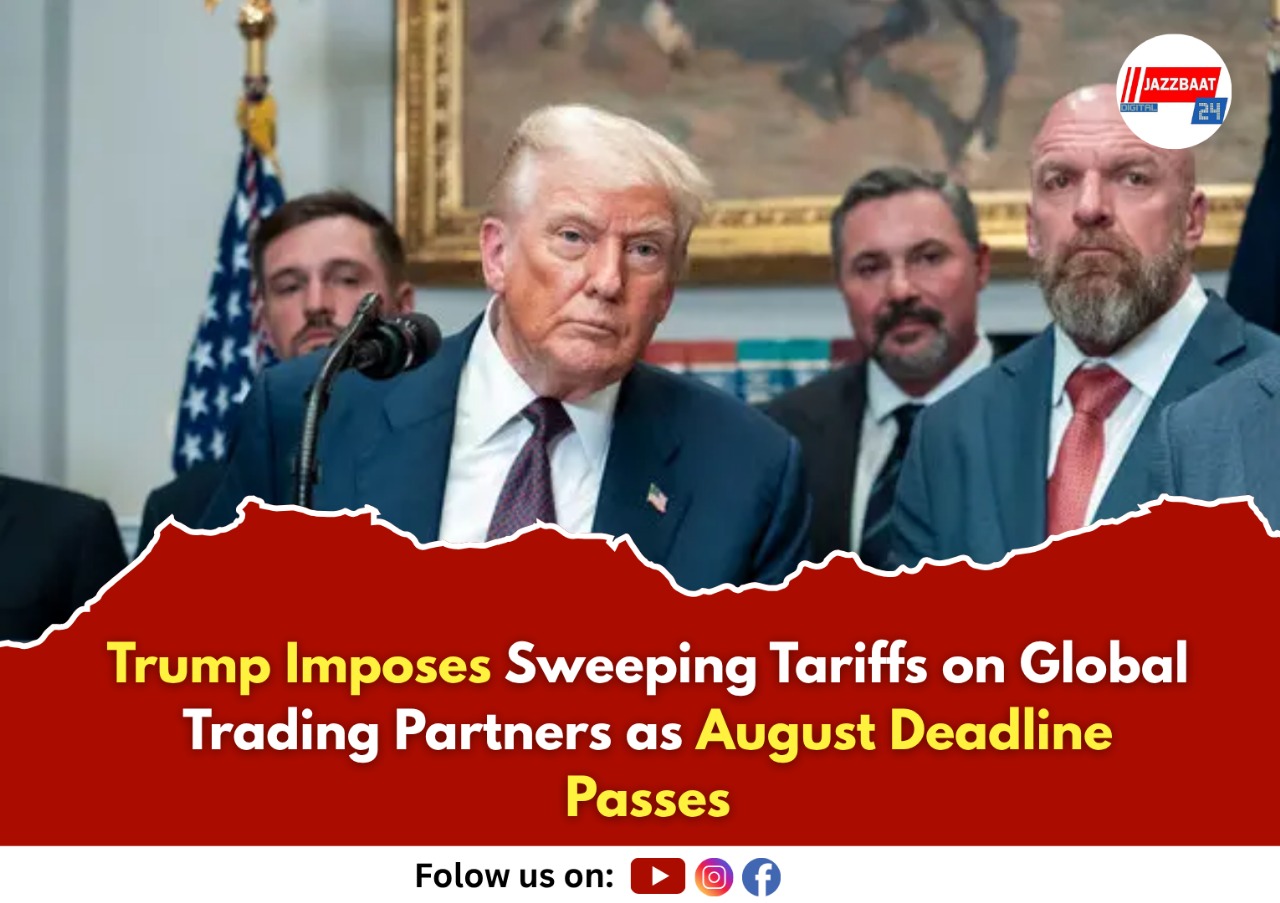
President's tariff blitz hits 69 countries with duties ranging from 10% to 41%, sending global markets tumbling
U.S. President Donald Trump delivered on his promised trade ultimatum Friday, unleashing a barrage of tariffs on dozens of trading partners as his self-imposed August 1 deadline expired. The sweeping measures affect 69 countries, with rates spanning from 10% to a punishing 41%.
Among the hardest hit are traditional allies and major trading partners. Canada faces a steep 35% tariff on goods not covered by the U.S.-Mexico-Canada trade agreement, while Brazil confronts a 50% levy. India remains subject to a 25% tariff plus an unspecified "penalty" for its continued trade relationships with Russia.
The tariff announcement sent shockwaves through global financial markets. Asian equities tumbled, with the MSCI Asia-Pacific index falling 1.5% and posting its worst weekly performance since April. European markets followed suit, with the Stoxx 600 dropping 1% in early trading.
"The August 1 announcement on reciprocal tariffs are somewhat worse than expected," said Wei Yao, chief economist at Société Générale Asia. However, she noted that markets appeared more resilient than during April's initial tariff shock, suggesting investors are becoming accustomed to Trump's aggressive trade tactics.
The tariff structure reveals a complex web of diplomatic and economic calculations. Pakistan emerged as an unexpected winner, seeing its rate slashed from 29% to 19% following a deal with Washington to jointly develop oil reserves. This gives Pakistani textile exporters a significant advantage over competitors in India, Bangladesh, and Vietnam, all facing higher duties.
Asian economies showed mixed results from last-minute negotiations. South Korea and Japan, both key U.S. allies, managed to secure reduced rates of 15% after intensive diplomatic efforts. Taiwan's tariff was cut from 32% to 20%, though officials there called it "temporary" as talks continue.
The measures extend beyond traditional trade disputes. Trump's 50% tariff on Brazil explicitly targets the country's judiciary and its treatment of former President Jair Bolsonaro, marking an unprecedented politicization of trade policy. Similarly, Canada's rate increase was partly attributed to Prime Minister Mark Carney's planned recognition of Palestinian statehood.
China remains conspicuously absent from Friday's announcements, with Beijing and Washington still negotiating under a separate August 12 deadline. The world's two largest economies are reportedly discussing everything from semiconductor export controls to rare earth minerals and fentanyl production.
The dollar strengthened significantly on the tariff news, posting its best weekly performance in nearly three years. However, the moves threaten to complicate global supply chains and potentially fuel inflation in the United States.
White House officials indicated more trade deals could be announced soon, with Press Secretary Karoline Leavitt noting that "upwards of 200 countries" had reached out to the administration's trade team.
As the dust settles from Trump's latest trade offensive, the global economy braces for what many economists warn could be prolonged trade tensions affecting everything from consumer prices to international relations.